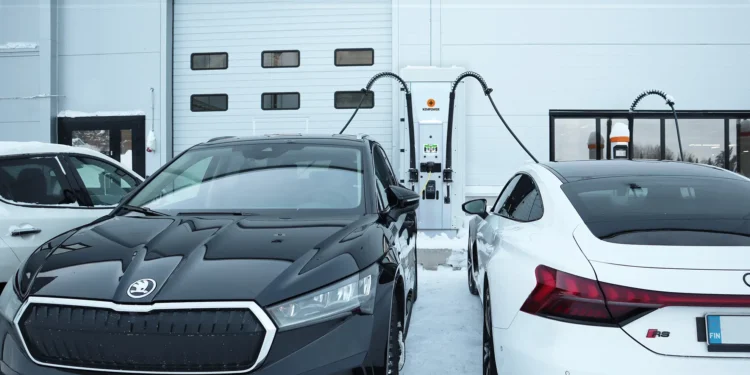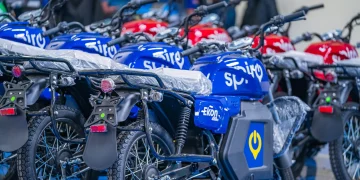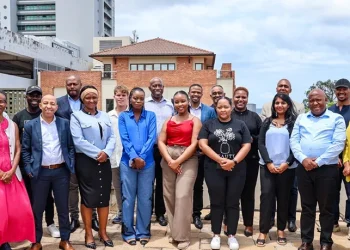Finnish charging specialist Kempower has entered Africa through a partnership with Paterson Simons, a long-standing equipment distributor in West and Central Africa. Their first deployment is at Meridian Port Services in Tema, Ghana, where six 300 kW fast chargers are now supporting the shift to electrified port operations.
Africa’s Electrification Gap
The electric vehicle debate in Africa often centres on passenger cars. Yet some of the heaviest emitters are industrial machines — port cranes, terminal tractors, and logistics fleets that run around the clock. Electrifying these assets is not just about reducing emissions. It is about ensuring operational reliability and lowering long-term costs in sectors where downtime is expensive.
By targeting a major port in Ghana, Kempower and Paterson Simons are signalling that Africa’s e-mobility transition may begin in industrial hubs rather than city roads.
The Technology
Kempower has supplied six 300 kW CCS2 Double Satellite chargers to the Tema port site. Unlike roadside EV chargers, these units are designed for industrial duty cycles. Their modular design allows multiple machines to be connected and charged simultaneously, while liquid cooling and remote diagnostics help maintain uptime in hot, dusty environments.
The flexibility is critical for ports, where equipment schedules are unpredictable and reliability is paramount. By scaling beyond single-point charging, the system ensures that electrified fleets can operate without disrupting daily throughput.
Why Partnership Matters
Technology alone will not sustain Africa’s electrification push. Kempower has made Paterson Simons its official sales and aftermarket partner for West and Central Africa, giving local operators access to installation, spares, and service without relying on overseas support.
Paterson Simons engineers have been certified through the Kempower Academy, ensuring on-the-ground capability to maintain complex charging systems. That local layer is essential for industrial customers, where even a few hours of downtime can disrupt port or mining operations.
By embedding technical support in the region, the partnership reduces one of the biggest risks facing Africa’s early adopters of electrified heavy machinery: lack of service infrastructure.
What Comes Next
Kempower’s entry into Ghana highlights a different route for Africa’s e-mobility shift. Instead of waiting for mass adoption of passenger EVs, the transition may be led by ports, mines, and logistics hubs where electrification delivers immediate cost and reliability gains.
If the Tema deployment proves successful, it could open the door for more industrial charging projects across West and Central Africa. That would position heavy-duty infrastructure as the spearhead of the continent’s electric future — with Ghana setting an early benchmark.
















